Zondervan Commentaries Collection (5 vols.)
Digital Logos Edition
Overview
Providing careful examinations of seven biblical books—Genesis, Matthew, Galatians, James, 1 & 2 Timothy, and Titus—the Zondervan Commentaries Collection elucidates the Good News in a way that is perfect for the layperson. Moreover, these writings provide a great background of context and clarity to the Scriptures, creating a fantastic tool for sermon preparation, small group study, and personal growth for any leader in ministry.
- Five commentaries on books of the Old and New Testaments
- Outstanding commentary from Samuel Ngewa, Bruce Waltke, and more
- Works Perfect for students, ministers, and laity
- Title: Zondervan Commentaries Collection
- Publisher: Zondervan
- Volumes: 5
- Pages: 2,800
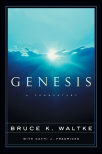
Exploring the first book of the Bible as “theological literature,” Bruce K. Waltke illuminates its meanings and methods for the pastor, scholar, teacher, student, and Bible-lover. Genesis strikes an unusual balance by emphasizing the theology of the Scripture text while also paying particular attention to the flow and development of the plot and literary techniques—inclusion, irony, chiasm, and concentric patterning—that shape the message of the “book of beginnings”.
Bruce K. Waltke, acknowledged to be one of the outstanding contemporary Old Testament scholars, is professor of Old Testament at Reformed Theological Seminary in Orlando, Florida, and professor emeritus of biblical studies at Regent College in Vancouver. He has authored and co-authored numerous books, commentaries, and articles, and contributed to dictionaries and encyclopedias.
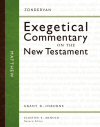
In this volume of the Zondervan Exegetical Commentary on the New Testament series, Grant Osborne offers pastors, students, and teachers a focused resource for reading the Gospel of Matthew. Through the use of graphic representations of translations, succinct summaries of main ideas, exegetical outlines, and other features, Osborne presents the Gospel of Matthew with precision and accuracy.
Grant R. Osborne (PhD, University of Aberdeen) is professor of New Testament at Trinity Evangelical Divinity School in Deerfield, Illinois. He has been at Trinity since 1977. His areas of expertise include the Gospels, hermeneutics, and the book of Revelation. His numerous publications include The Hermeneutical Spiral and commentaries on Revelation, Romans, John, and Matthew.
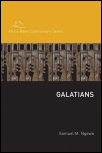
Galatians, the second of the Africa Bible Commentary Series preaching commentaries written by Samuel Ngewa, is both a teaching resource for theological colleges and Bible schools all over the country and a Scriptural resource for lay readers to preach and apply God’s Word all over the world.
Samuel Ngewa received his PhD at Westminster Theological Seminary and is currently professor of New Testament Studies at the Nairobi Evangelical Graduate School of Theology, Kenya. Formerly, he was a faculty member of Scott Theological College.
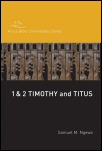
This commentary by Samuel Ngewa is divided into preaching units that contain detailed exposition of the passage as well as contemporary applications. The unit is not intended to be preached as a sermon, but provides material to be drawn on in sermon preparation. Each unit is followed by two or three questions that could be used for a small group or personal study. Academic issues relating to the Greek text and disputes about interpretation are dealt with in the extensive end notes. Africa Bible Commentary Series: 1, 2 Timothy and Titus is thus suitable for use as a teaching resource for theological colleges and Bible schools while also being suited to readers who are looking for ways to preach and apply the Scriptures.
Samuel Ngewa received his PhD at Westminster Theological Seminary and is currently professor of New Testament Studies at the Nairobi Evangelical Graduate School of Theology, Kenya. Formerly, he was a faculty member of Scott Theological College.
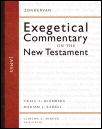
Authors Craig Blomberg and Mariam Kamell use the historical, theological, and literary elements of James to guide their interpretation of this often-overlooked early Christian text. Their concise discussion of how the book delivers consistent, challenging instruction will help pastors and church leaders teach the message of James to today’s readers.
Craig L. Blomberg holds a PhD from the University of Aberdeen, Scotland. He is the author, co-author, or co-editor of 15 books and more than 80 articles in journals or multi-author works.
Mariam J. Kamell is a post-doctoral fellow at Regent College, Vancouver. She has published several articles on James focused on its economics or in comparison with Hebrews or 1 Peter; her dissertation focused on soteriology in James in comparison with earlier Jewish wisdom literature and the Gospel of Matthew.